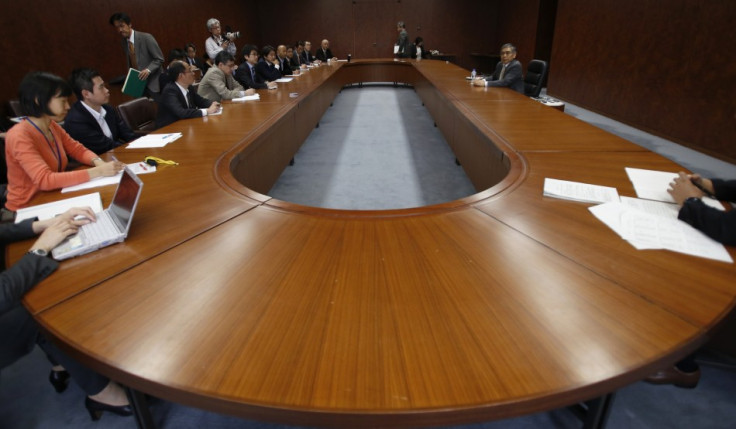Bank of Japan Maintains Monetary Easing as Deflation Worries Continue
Consumer prices excluding fresh food declines 0.5% in March

The Bank of Japan (BOJ) has kept unchanged its monetary policy to boost money supply in the economy, as the country continues to suffer from deflation with consumer prices rising the most in two years.
As expected by most economists, the BoJ held off on any new policy moves and kept its monetary easing at the same pace it set three weeks ago.
"The Bank of Japan will conduct money market operations so that the monetary base will increase at an annual pace of about 60-70 trillion yen ($610-$710bn)," the central bank said in a statement.
The monetary base is an economic measure that includes physical currency in circulation and financial institutions' assets held with the BoJ.
The yen rose modestly after the announcement, with the dollar declining to 98.55 yen from 99.06 yen ahead of the statement.
Separately, the government said that consumer prices fell the most in two years. Consumer prices excluding fresh food declined 0.5% in March from a year earlier, while overall prices declined by 0.9%, according to the statistics bureau.
Economists expected the prices to fall by 0.4% on average, according to Bloomberg.
The data indicate continuing challenge for Governor Haruhiko Kuroda as he aims to meet a 2 percent inflation target in a two-year time horizon.
Despite its aggressive monetary easing, the BoJ was expecting further decline in consumer prices in the short run. The bank board members are expected to raise their forecasts for consumer prices in the latest projections.
In January, the nine-member panel projected the core CPI to rise 0.9% in fiscal year ending in March 2015.
Friday's meeting was the second for Kuroda, who was appointed by Prime Minister Shinzo Abe in March to find a way to pull Japan out of 15 years of deflation. On 4 April, he surprised markets with plans to double Japan's monetary base within two years to hit the 2% inflation target, mostly by buying government bonds.
© Copyright IBTimes 2025. All rights reserved.


















